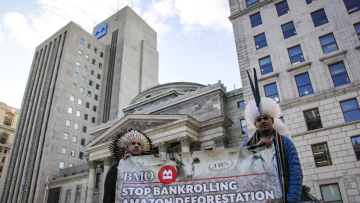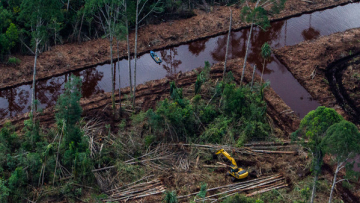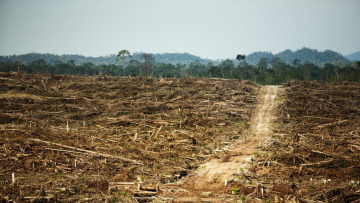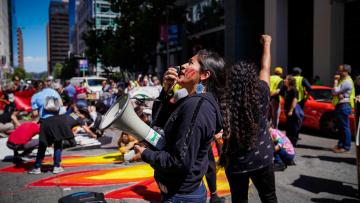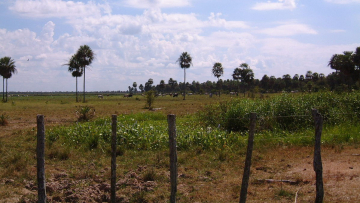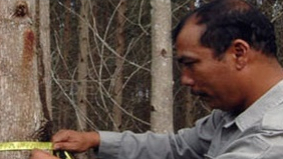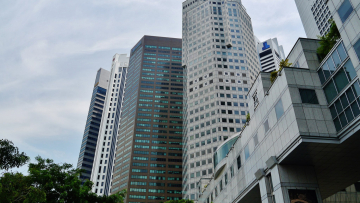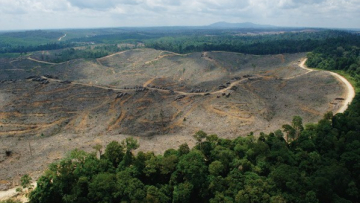Global bank policies ‘dangerously inadequate’ to prevent financing of deforestation, climate chaos and human rights abuses
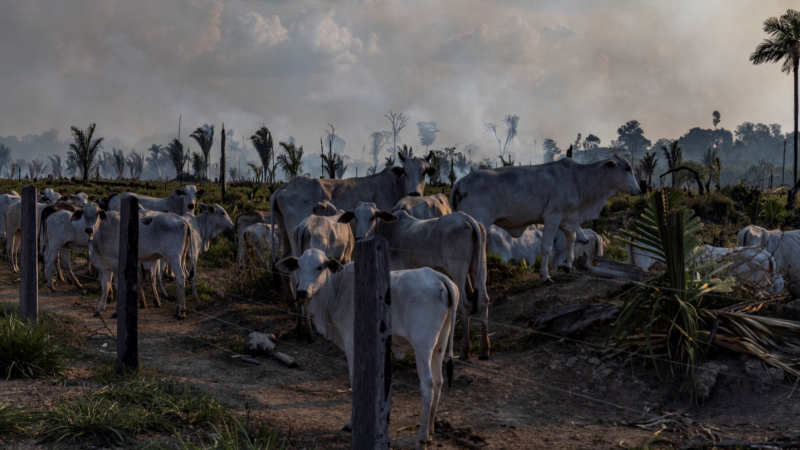
A new report, released today by the Forests & Finance Coalition - Rainforest Action Network, Profundo, TuK Indonesia, BankTrack, Amazon Watch, Reporter Brasil, Sahabat Alam Malaysia and Friends of the Earth US - finds that none of the largest banks and investors in the high-risk AFOLU (Agriculture, Forestry and Other Land Use) sectors have sufficient Environmental, Social and Governance (ESG) policies. Forests & Finance hosts an unrivaled transparency platform which reveals the financial flows to the world’s largest forest-risk commodity companies operating in tropical forests regions. The extensive, searchable dataset has just been updated to include credit, bondholdings and shareholdings as of September 2022.
This means that money keeps flowing to forest-risk commodity companies in a largely unrestricted way. Since the Paris agreement was signed, banks have pumped USD 267 billion into forest-risk commodity companies, and as of September 2022, investors held USD 40 billion in bonds and shares in forest-risk commodities.
“It is now well established that the twin crises of climate change and biodiversity loss pose a generational, planetary scale threat and yet, the world’s financial institutions are actually increasing their lending to the very industries driving humanity to the brink,” said Tom Picken, Forest and Finance Campaign Director with Rainforest Action Network and a founding member of the Forests & Finance Coalition. “ This latest assessment shows how big banks and institutional investors are blind to the urgency of the moment and financial sector policies remain dangerously inadequate. With the agriculture, forestry and land-use sector contributing 23% of global carbon emissions, it is abundantly clear that we must overhaul the rules governing bank and investor decision-making if we are to meet the global climate, biodiversity and rights emergencies we face.”
The new assessment of 200 of the largest banks and investors in global forest-risk commodities in tropical forest regions raises grave concerns. Overall, the average score was just 1.6 out of 10 and an alarming 59% of financial institutions scored under 1, indicating an abject failure to manage and mitigate Environment, Social or Governance risks. Just 3 financial institutions scored 7 or higher which still leaves substantial room for improvement and does not reflect the urgency with which the world must address climate change and biodiversity loss.
The briefer highlights the role of finance for two particularly forest destructive sectors: the pulp and paper sector in southeast Asia and the beef sector in the Amazon. The southeast Asian pulp industry can be linked to over 170,000 hectares of deforestation in the past years. Yet, since the Paris Agreement, the sector has attracted USD 23.6 million in credit. The largest five banks financing Royal Golden Eagle and Sinar Mas’ pulp divisions in Southeast Asia between 2016 and September 2022 were: Indonesian Bank Rakyat Indonesia (USD 4.3 billion), Bank Mandiri (USD 2.7 billion), Bank Central Asia (USD 2.5 billion) and Bank Negara Indonesia (USD 1.4 billion); and British Barclays (USD 2 billion). The average score for the pulp and paper policies of these banks was only 1.3 out of 10.
The beef sector is the largest driver of deforestation in the Amazon. Despite the fact that no slaughterhouse can guarantee it produces deforestation free, banks keep pumping money into the sector. The largest banks financing Brazil’s beef giants JBS, Marfrig and Minerva between 2016 and September 2022 were Bradesco (USD 1 billion), Santander (USD 774 million), HSBC (USD 746 million), Banco do Brasil (USD 723 million) and BTG Pactual (USD 648 million). These groups also received investment from BNDES (USD 566 million), Vanguard (USD 60 million), Algemeen Burgerlijk Pensioenfonds (ABP) (USD 55 million) and BlackRock (USD 46 million). The average score of these financial institutions on their beef policies was just 1 out of 10.
Forests & Finance 2022 assessment of the largest banks and investors shows that the majority have no policies to prevent deforestation, peat degradation, fires, or uphold human rights including FPIC for IPs and local communities, or to prevent forced or child labor. The policies are very minimal and fall well below providing protection. Regulators need to wake up and stop outsourcing the pace and scale of climate action to the financial institutions profiting from destruction.
To learn more about our data, register for our webinars:
English webinar: Oct 18th, at 10:00 UTC, register here
Brazilian webinar: Oct 18th, at 16:00 UTC, register here
Indonesian webinar: Oct 18th, at 03:00 UTC, 10:00 WIB, register here.

